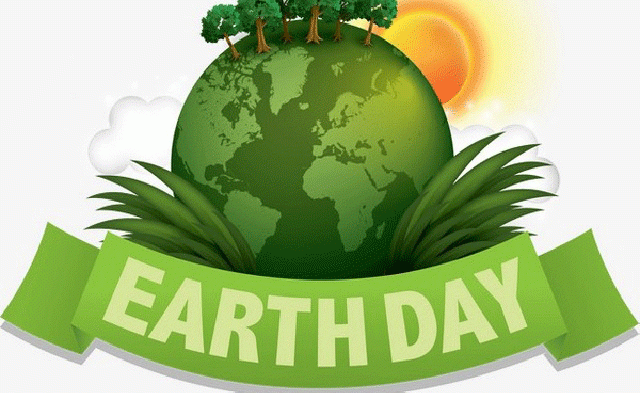
By Peter Makwanya
On April 22, the world commemorated Earth Day 2021. The theme was: Natural processes, emerging green technologies and innovative thinking that can restore the world’s ecosystems.
The theme was quite comprehensive, with all the essential elements squeezed into one due to the magnitude of problems currently impacting the earth with the climate crisis and COVID-19, all having negative effects on the earth.
Regrettably, before the key elements in the theme could be realised, the earth needs healing first. Not only environmental healing, but overall cleansing.
In this regard, if the earth were a person, it could be described as ailing, overburdened, poisoned, abused and manipulated. The natural processes have been altered by human activities and the world is warming up very fast.
Current events point towards a scenario of no return and tipping point. For this reason, the main priority should be investment in environmental protection and climate action strategies. These are aimed at restoring the earth to manageable proportions.
Restoration efforts worldwide are being slowed down by the major powers and their multinational proxies who are busy deceiving the world, while playing paradoxical games.
These multinational companies appear at the forefront of investing in green technologies yet in the background they are busy accelerating carbon emissions and leaving negative footprints all over the world.
- Chamisa under fire over US$120K donation
- Mavhunga puts DeMbare into Chibuku quarterfinals
- Pension funds bet on Cabora Bassa oilfields
- Councils defy govt fire tender directive
Keep Reading
They thrive on the power of resources to fool, bribe and calm emerging voices against their unsustainable practices, hence they are mortgaging the earth at the same time taking everyone for a ride.
Opportunities to restore and reclaim the essence of the earth were missed and could not be realised before the advent of COVID-19.
Now the world is facing compounding challenges all designed to leave the earth weak and exposed.
Stakeholders participating in resilience building and mitigation discourses are having nightmares, their hands are tied and efforts are frustrated.
The compounding factors present multiple problems and healing the earth is not the major powers’ worry although they continue pretending as if they are worried. The COVID-19 pandemic has shaken their strong resource base and they are screaming.
In the midst of endless paradoxes, arrogance and pretence, the earth is under severe pressure, with no tangible and credible climate actions outweighing the inherent threats, things may soon fall apart.
Therefore, the Earth Day is one of the too many reminders that, indeed yes, we have only one earth and the world has to comply, invest in creative thinking, innovate and avoid self-serving interests.
The earth is facing a new wave of hidden damages, leaving the natural ecosystems potentially in disarray and unbalanced.
As we speak, there are unwanted guests exploring for oil and gas in the Okavango basin, with the blessing of the corrupt authorities in the region. The magnificent wildlife, forests and water bodies which clothe the earth are very much threatened and exposed. The prevailing serenity and the usual wild animal cultures, behaviours and living patterns have been disrupted and redefined.
The fracking that is going on in the basin is going to have major impacts on the earth, water, animal movements and human settlement patterns. As a result, the serene natural wonder of the Okavango basin will never be the same again.
Far afield in other African countries and the world, destructive explorations and unsustainable mining practices are having negative impacts on flora and fauna.
The extractive sector is booming and spreading like wild fire leaving trails of destruction, scars, dungeons and gullies on the earth’s surface.
A wide range of minerals from the extractive sector are being mined with great speed and less precision, at the same time releasing massive carbon emissions and greenhouse gases into the atmosphere, accelerating its potential to warm.
As all the negative impacts weigh against the earth, a smooth transition from high carbon to low carbon economies might just prove to be a mirage, smokescreen and myth. For these reasons, the sustainability of the green energy technologies remains very much in doubt.
The paradox in this regard is that, for the green technologies equipment to materialise, they require minerals and metal compositions to function and these will come from mining activities —regardless of whether sustainable or unsustainable.
In this regard, it is not clear what forms of climate-smart mining are taking place throughout the world, but the bottom line is that there are lots of injustices and unethical mining practices being carelessly conducted.
The negative impacts of unsustainable mining practices are accelerating, affecting the already stressed and poisoned earth.
The matrix for the survival of the earth is premised on climate justice, green minerals and smooth transitions to low carbon economies.
Therefore, countries need to strive to maintain low per-capita energy emissions and consumption and contribute a small fraction to global emissions.
Furthermore, the impact and density of building exerting enormous pressure on the earth’s surface is increasing and the earth’s carrying capacity has been tampered with.
Deforestation rates are also overtaking reforestation rates. For this reason, mitigation scenarios rooted in the Paris Agreement need continuous revisiting and checking.
Finally, if the earth is to stay healthy and resilient, emissions need to be reduced to zero, the green technologies need to be accessed by the poor, human activities that threaten natural processes must be minimised, sustainable building practices that do not strain the earth’s holding capacity should be practised and stakeholders should advocate for environmental solutions instead of self- and politically-driven interests.
- Peter Makwanya is a climate change communicator. He writes in his personal capacity.











